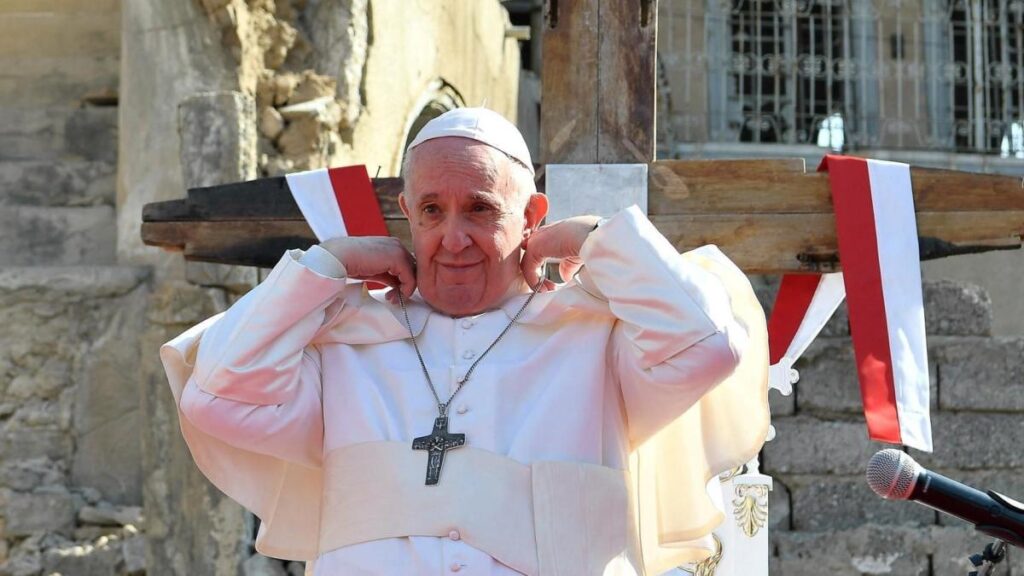In his upcoming autobiography, Pope Francis reveals how a plot to assassinate him during his historic trip to Iraq in March 2021 was thwarted, thanks to a critical alert from British intelligence. This trip marked the first time a pope had visited Iraq, taking place over three days amid the challenges of the COVID-19 pandemic. The Pope recounts that upon his arrival in Baghdad, he was informed about serious threats to his life: two suicide bombers had planned to target an event he was supposed to attend. The timely intervention of intelligence agents and Iraqi police led to the interception and elimination of both assailants, ensuring the safety of the papal visit.
Prior to the Pope’s journey, Iraq had experienced a surge in sectarian violence, primarily stemming from conflicts between Shia and Sunni Muslims. Additionally, the country’s religious minorities, especially its dwindling Christian population, had faced significant persecution, notably by extremist groups like the Islamic State. The situation in Iraq raised considerable concern for the Pope’s safety, and many advised him against making the visit. Nevertheless, he felt a profound sense of obligation to go, believing that his presence could provide hope and encouragement to the beleaguered Christian communities that had suffered greatly in recent years.
In his autobiography, aptly titled “Hope,” Pope Francis elaborates on the alarming details surrounding the thwarted assassination plot. He describes how British intelligence detected the threat, including reports about a woman packing explosives and a young suicide bomber aimed at the papal event in Mosul. The intelligence prompted immediate action, with local Iraqi law enforcement being alerted to the danger. This information was swiftly relayed to the Pope’s security team after he had landed, illustrating the critical role that international cooperation plays in ensuring safety during high-profile visits.
The Pope’s reflections reveal his inner conflict about proceeding with the trip amidst such peril. Even as he faced urgent warnings and dissuasion from various advisors, he felt an undeniable pull to visit Iraq. His decision underscored a central theme of his papacy: the importance of bridging divides and demonstrating solidarity with marginalized and oppressed communities. Despite the considerable risks, the Pope maintained that the visit was essential for fostering peace and hope in a country fraught with turmoil.
Circumstances in Iraq had made previous papal visits difficult, but the Pope emphasized his mission to stand in solidarity with all those suffering from violence, particularly Christians who have faced increasing threats over the years. He has long advocated for a message of peace and reconciliation, and visiting a nation like Iraq, with its rich Christian heritage and deep-rooted suffering, exemplified his commitment to this cause. The decision to proceed with the visit, despite the dangers, speaks to his belief in the transformative power of faith and the urgent need for dialogue and healing.
Pope Francis’s autobiography, scheduled for release on January 14, provides an intimate look not only at a significant moment in contemporary history but also at the challenges faced by religious leaders in times of crisis. His narrative serves as a poignant reminder of the ongoing struggles within Iraq and the broader Middle East, where divisions continue to create conflicts that affect millions. As he prepares to share these experiences with the world, the Pope reiterates that hope remains vital, even in the darkest of times, affirming his role as a messenger of peace amidst chaos.

